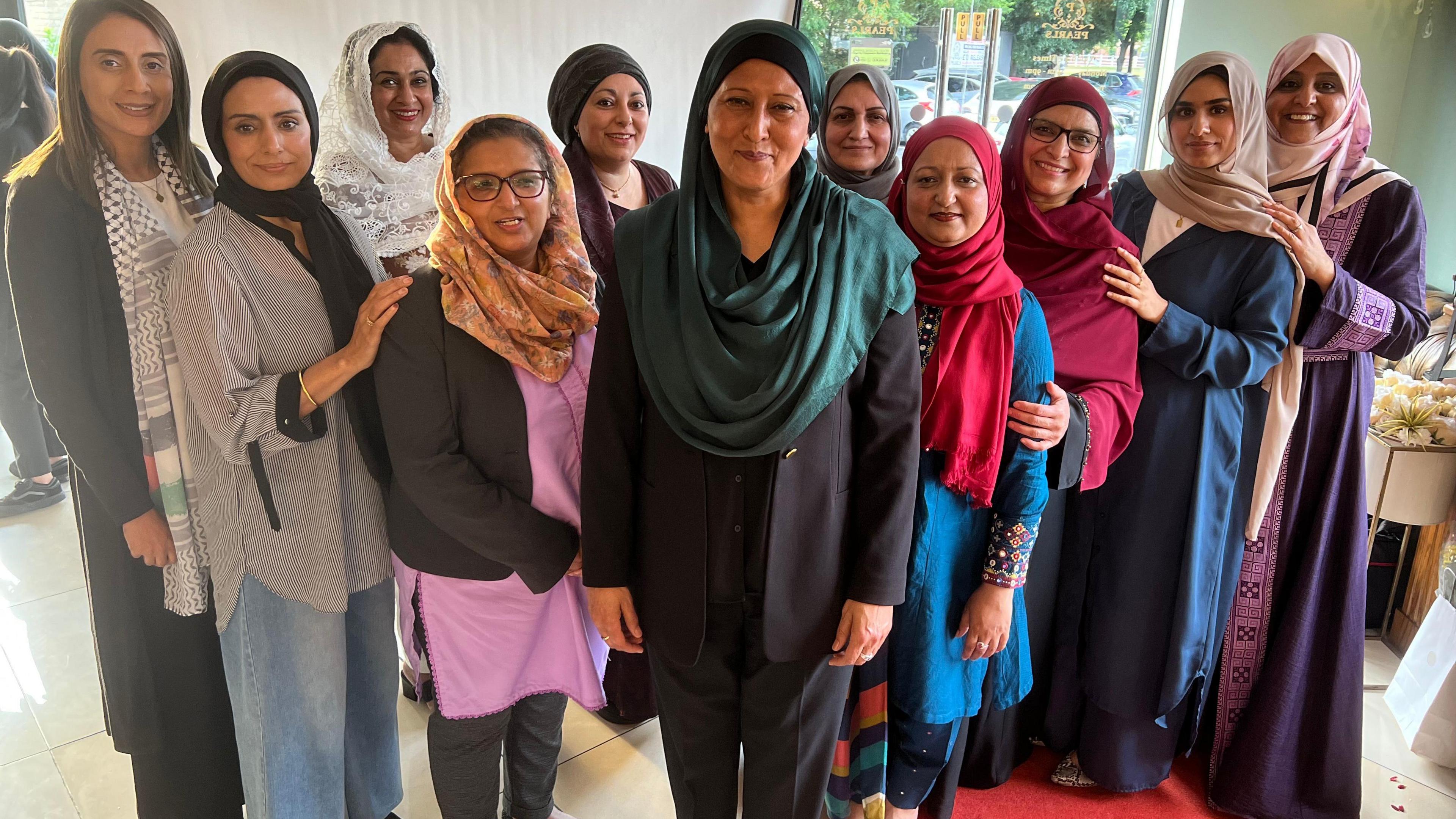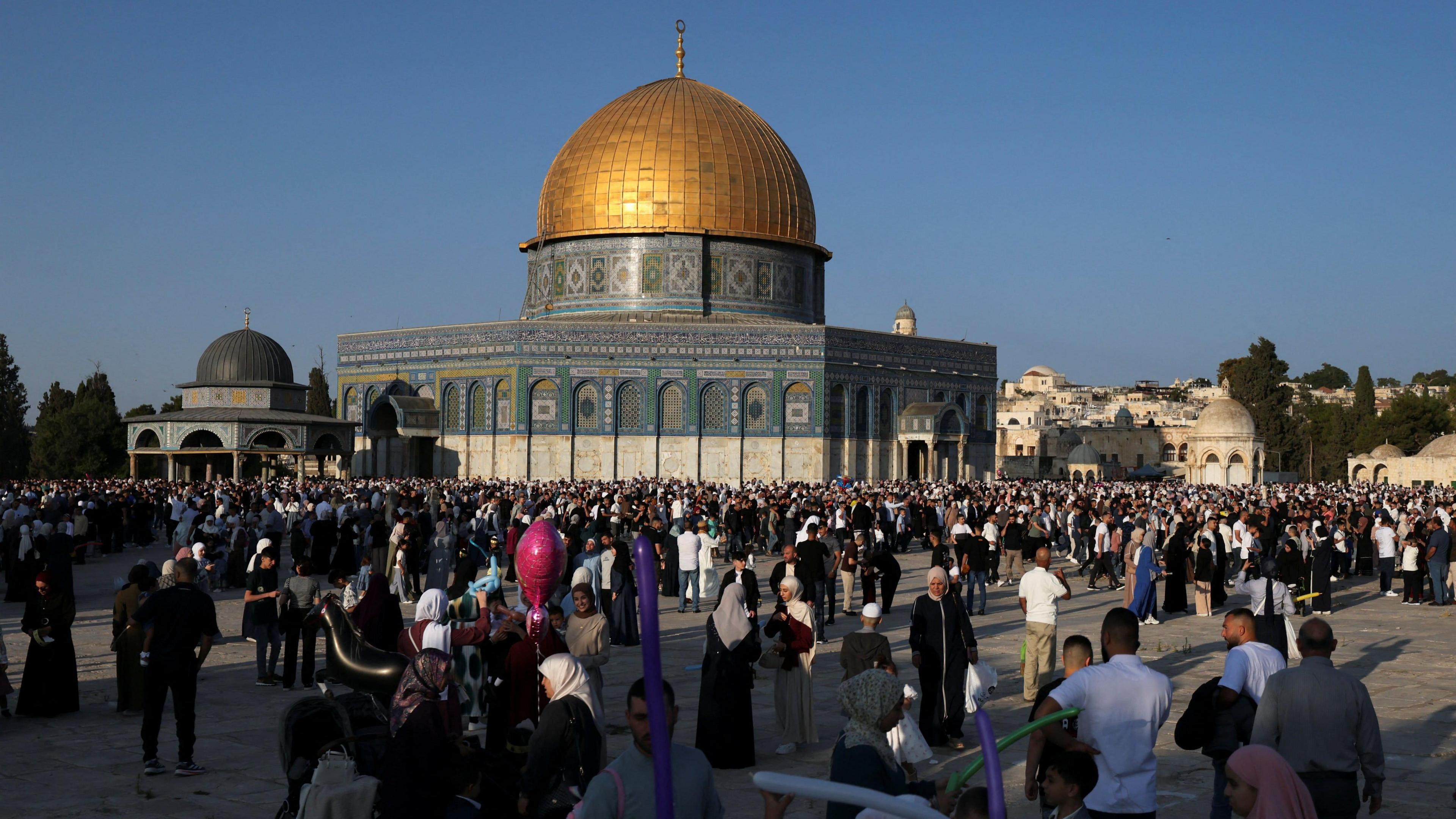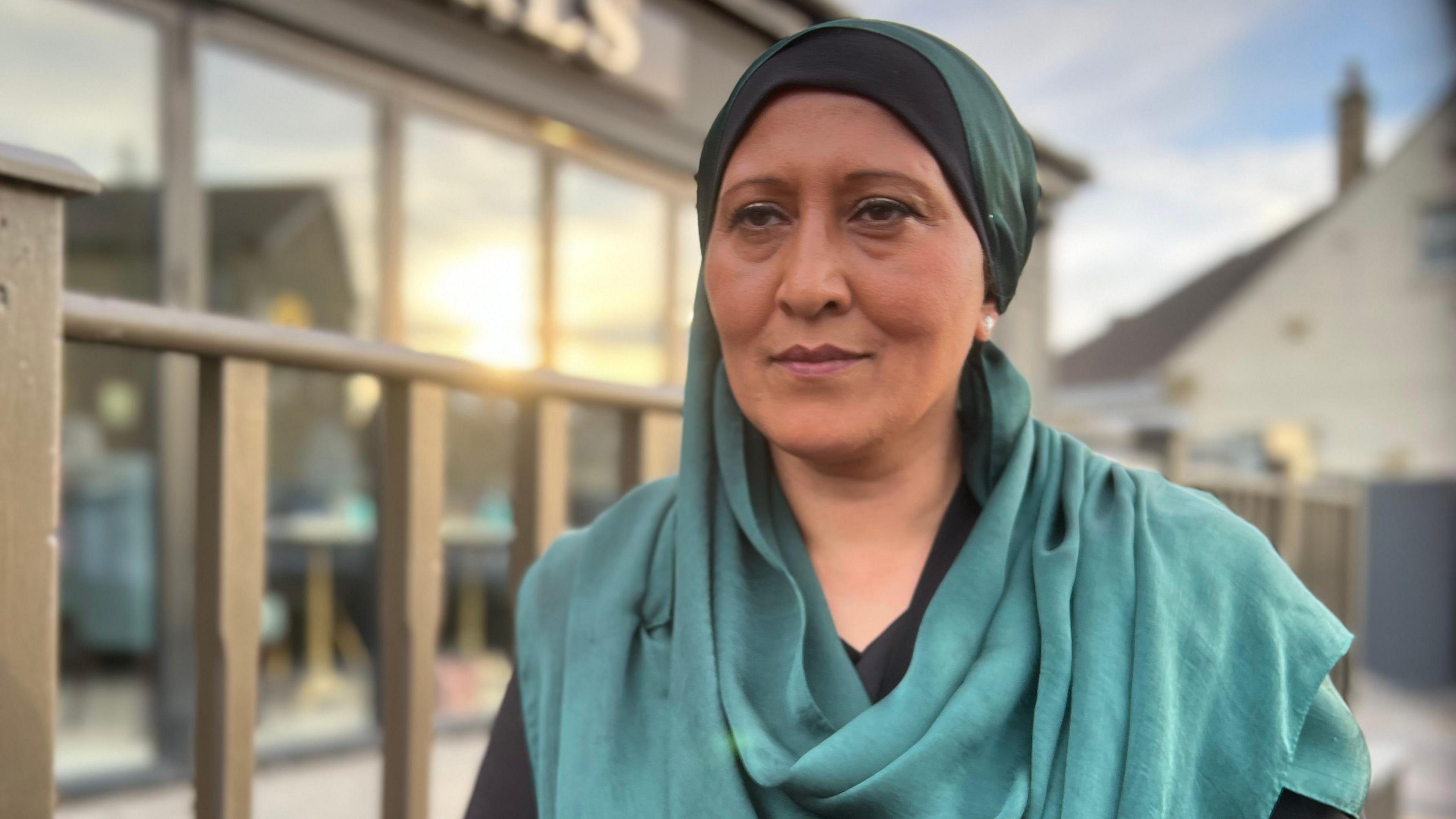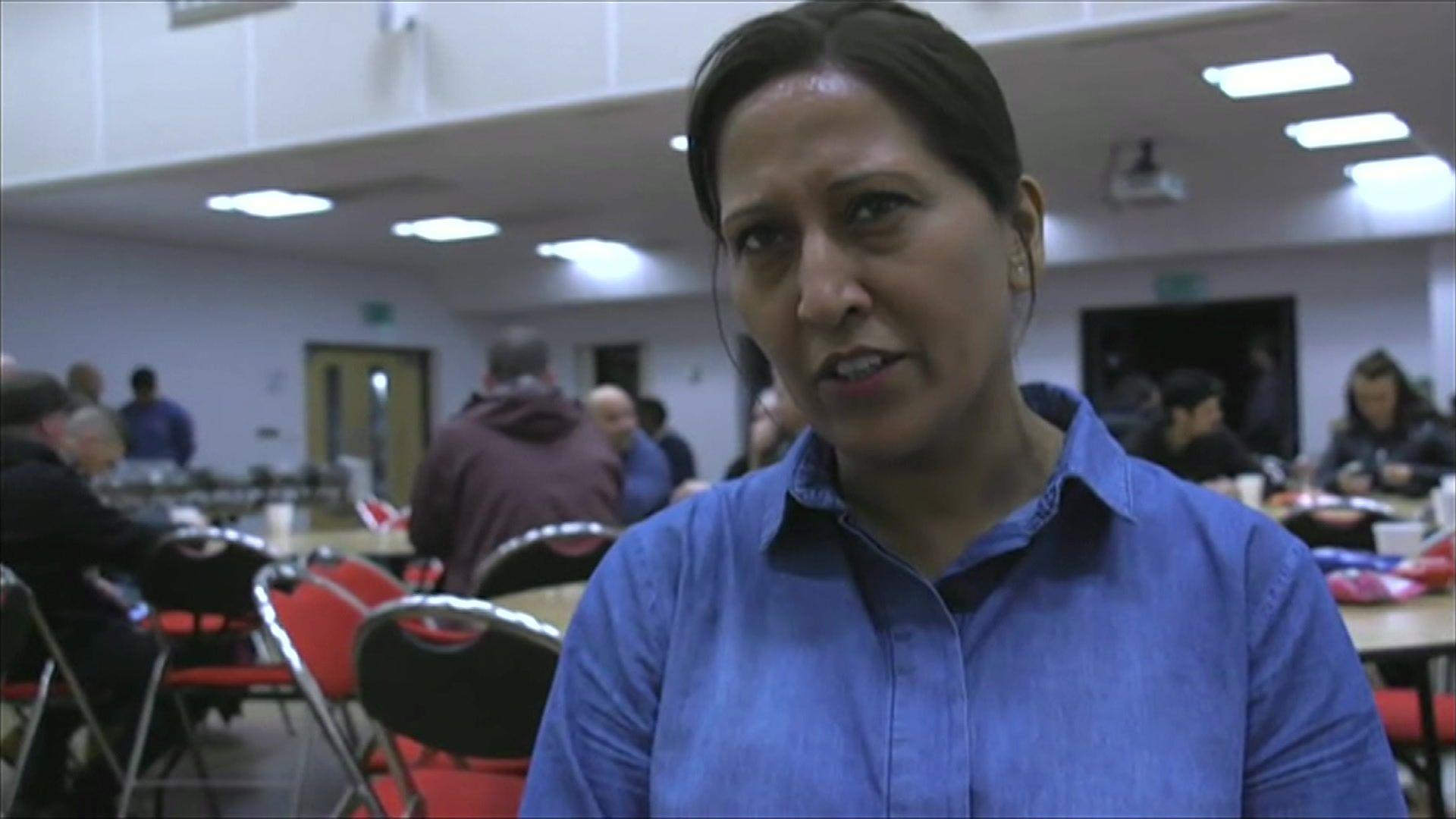'We were stranded in a war zone - we're so happy to be home'

The group say they have "no regrets" about the trip which allowed them - as an unintended consequence - to "bear witness" to an important moment
- Published
A group of women whose pilgrimage to Jerusalem's Al-Aqsa Mosque was disrupted by the recent Iran–Israel conflict have returned home safely.
The women, from Bradford, described how their spiritual journey to the Middle East quickly became overshadowed by missile alerts, heightened security measures and fears for their safety.
The group eventually fled to nearby Jordan and, after multiple flight delays and cancellations, said they flew home after paying thousands of pounds in additional costs.
Bana Gora, CEO of the Muslim Women's Council which organised the trip, said: "We prayed on the hotel rooftop, under the open sky, not knowing if we would ever return again."

Temple Mount in East Jerusalem, home of the Al Aqsa mosque, is part of a site which is sacred for three major world religions
The Al-Aqsa Mosque sits in East Jerusalem and is part of a site considered sacred by Muslims, Jews and Christians worldwide. The area was captured and occupied in 1967 by Israeli forces. Under international law, East Jerusalem is considered part of the Occupied Palestinian Territories (OPTs).
The Bradford group's visit, alongside a larger party of 45, coincided with a 12-day conflict between Israel and Iran, which began on 13 June – four days after the group flew out – when Israel carried out airstrikes on Iranian military and nuclear sites.
Iran responded with large-scale missile and drone attacks before a US-brokered ceasefire was declared on 24 June.
The Bradford group, speaking at a homecoming event, said they had been aware of pre-existing tensions in the wider region. However, they had not anticipated they were walking into a "war zone", with the conflict in Gaza focussed 40 miles away.
Despite the experience, they say they have no regrets, with many in the group saying they would travel again to the sacred site.
Saadia Mushtaq said: "Naturally, we are human and it's something that we have never experienced before, being British. We've never experienced missiles going off above our heads.
"But the way I look at it is that the difficulties were nothing compared to what the Palestinians go through on a daily basis."
Speaking about why such trips remain important despite the risks, she added: "It's important to bear witness. A lot of people within our group had never been there before, so it was to help them understand the importance of that holy place and the fact that it is important for all of the Abrahamic religions - Christianity, Judaism and Islam."

Bana Gora, chief executive of Bradford-based Muslim Women's Council
Another participant, Mariam Nisa, said: "I feel so relieved. I think we haven't really processed everything that's happened yet. It feels surreal."
She added: "The mosque is a holy place that is mentioned multiple times in our scriptures. So we know that it's a duty of ours to try to visit if we are able to, and we are the lucky ones who are able to do that.
"The actual Palestinians and people who live in Jerusalem are not actually able to enter the compound. We want to try to go and visit because we're very lucky to do so."
On the timing of their departure, she said: "No regrets. I am so grateful for the journey."
Ms Gora added: "This visit was a gift – but also a wake-up call. Al-Aqsa Mosque is not just ours to admire, it's ours to protect – in faith, in memory and in action."
Foreign Office (FCDO) advice to British nationals in Israel and the Occupied Palestinian Territories has relaxed since the conflict. It no longer advises against all travel or all but essential travel to some areas of Israel and the West Bank, but continues to advise against all travel or all but essential travel to other areas of Israel and the OPTs.
A spokesperson for the Foreign Office previously told BBC Yorkshire: "This is a distressing time for British nationals in the region, their safety and security is our top priority.
"The Foreign Office is working around the clock to... support British nationals affected."
Get in touch
Tell us which stories we should cover in Yorkshire
Listen to highlights from West Yorkshire on BBC Sounds, catch up with the latest episode of Look North.
Related topics
- Published18 June
